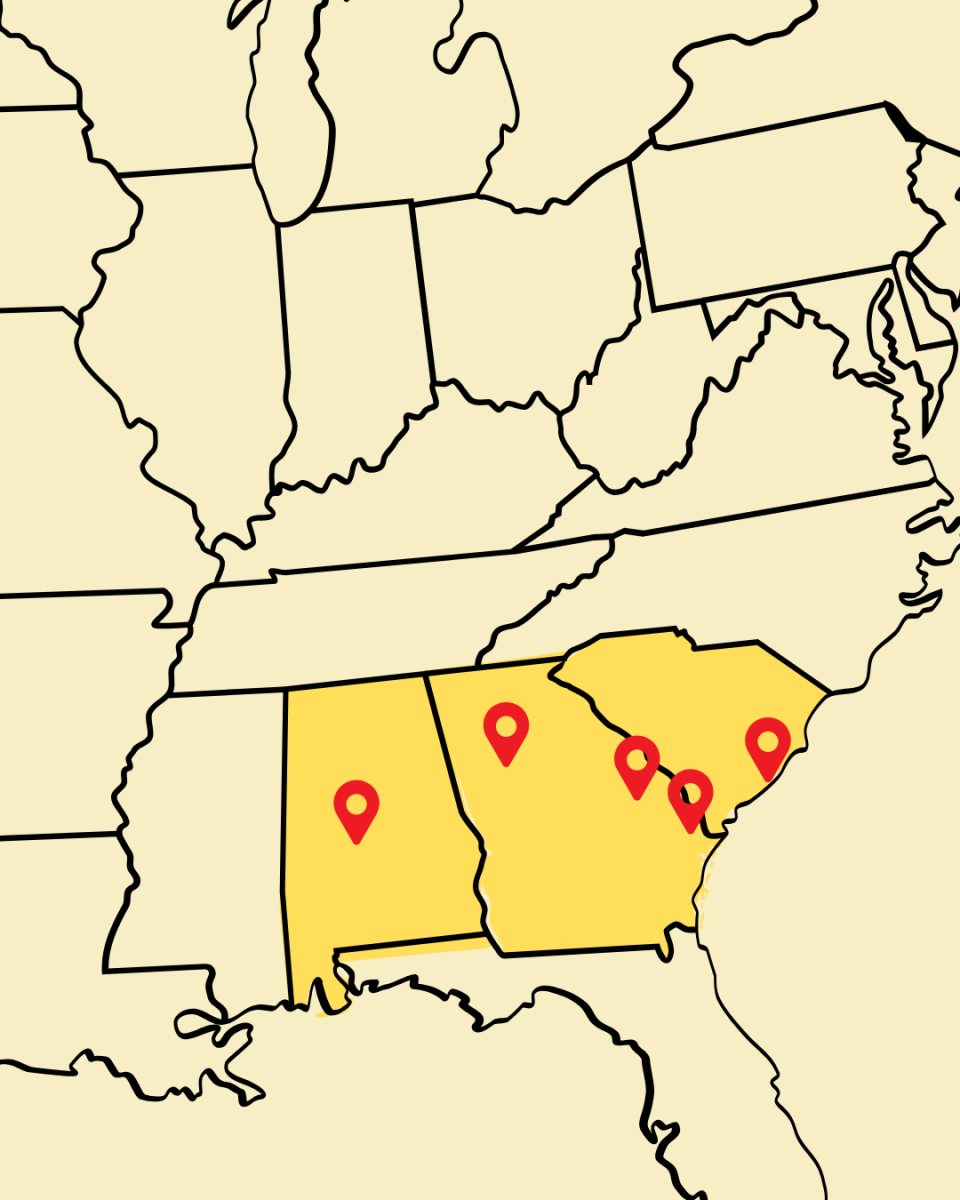The Partnership for Inclusive Innovations Community Outreach Grant program announced the regions for its 2024 cohort on Sept. 6 at the Community Research Showcase in Milledgeville, Georgia. GCSU is one of five communities chosen to participate in the Community Research Grant Program.
PINN is an organization that was created in 2020 in hopes of building coordinated and regional efforts to make Georgia the leader of innovation, opportunity and shared economic prosperity. They aim to work with universities, cities and non-profits to provide financial support for projects that help the respective communities and cities they reside in.
Community Research Grant artificial intelligence focus spans three states: Georgia, Alabama and South Carolina. In Georgia, the projects are based in Chatham County, Forsyth County and Millen.
This cohort highlights projects that utilize artificial intelligence, or AI, to help researchers’ communities by combatting pesticide poisoning and improving water infrastructure. There has been a collective $13.1 million awarded across 27 projects, along with PINN’s investment of $2.5 million.
“I am very iffy when it comes to artificial intelligence considering that it’s primarily human input that is being modified by a computer, but I feel like it could be helpful in a lot of cases,” said Ally Charles, a freshman criminal justice major. “I think a lot of issues that stem from AI come from AI being used in place of human work rather than it being used in tandem with it.”
The project teams are composed of a diverse group of 10 researchers representing four different universities, alongside collaboration from six local government entities and four K-12 educational partners.
“At Georgia Tech, we believe in our mission to develop leaders who advance technology and improve the human condition,” said Ángel Cabrera, Georgia Tech President in a video message at the event. “We are committed to giving everyone in our state the opportunity to benefit from technological innovation that can make their communities more secure, sustainable, resilient, and equitable and that’s exactly what we’re doing here.”
This program is aimed at fostering collaboration between university researchers and local governments. This program provides essential support through various means, including financial funding, expert consultation and project management resources.
Additionally, it grants access to the partnership’s summer internship program, which connects students with hands-on experience in community-based projects. Participants also benefit from a network of peers, facilitating knowledge sharing and collaboration over the course of year-long pilot projects.
“I think funding AI programs is very useful,” said Maya Lewis, a junior biology major. “Especially since AI is like an evolving and recent technology and it is growing still.”
In Charleston, South Carolina, and Savannah, Georgia, there are problems with coastal flooding, and one of the approved projects is set to use AI to help predict flood impact on roads. This project hopes to reduce economic strain on each community and allow for emergency services to reach those in distress faster.
“Our public safety agencies face a number of challenges during flood events, and we now have an opportunity to leverage cutting-edge technology to improve the level of service we provide to our citizens,” said Jenny Costa Honeycutt, Charleston county council public safety committee chair. “I’d like to thank the research team and Partnership for Inclusive Innovation for helping to fund this important initiative, and I look forward to getting started.”
According to the press release, another project is based in Millen, GA, where they hope to use AI to reduce pesticide exposure near cotton farms. The use of pesticides has affected the residents of Millen, and the city has decided to partner with Georgia Southern University to give farmers pest data in hopes of reducing the amount of pesticide used.
“I think AI is good in moderation,” said Mallory Jones, a freshman accounting major. “I feel like it should not be overused to the point of reliance, but I think it is good in helping guide you to the right answer.”
PINN is working towards achieving its goal of making Georgia the leader in innovation and economic prosperity through funding these projects.


